We hop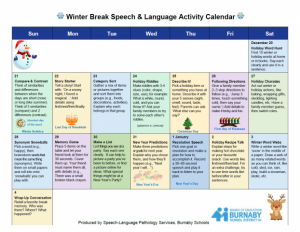 e everyone enjoys the winter break. Here are some fun activities to try:
e everyone enjoys the winter break. Here are some fun activities to try:
2025 Winter break SLP activity calendar
District Learning Support Services, Burnaby Schools
We hop e everyone enjoys the winter break. Here are some fun activities to try:
e everyone enjoys the winter break. Here are some fun activities to try:
2025 Winter break SLP activity calendar
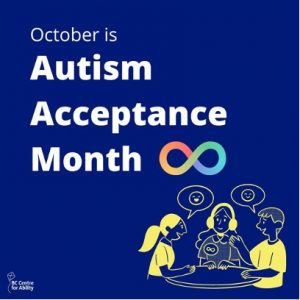
Autism Acceptance month is a time to celebrate neurodiversity and increase our understanding of Autism. This helps to reduce the stigma and discrimination that Autistic people experience, and it empowers Autistic individuals to express themselves confidently.
In September 2024, the Public Health Agency of Canada published a new framework for Autism in Canada.
“The purpose of the Framework for Autism in Canada (framework) is to promote the health and well-being of children, youth, adults and older adults on the autism spectrum, their advocates, families, and caregivers; and to provide a common direction for autism in Canada that lays the foundation for collaborative and complementary action to be taken by all sectors. The framework was created in response to the Federal Framework for Autism Spectrum Disorder Act” (Government of Canada, 2024).
To read and learn more about this framework for Autism in Canada click here.
The SLPs at the Burnaby school district value the unique perspectives, strengths, and talents of Autistic individuals, their families/caregivers, and the Autistic community. We are excited to celebrate Autism acceptance Month with you! To learn more about The Role of Speech-Language Pathologists in Supporting Autistic People click the link.
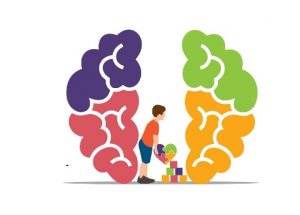
Reference
Government of Canada. (2024, September 26). Framework for Autism in Canada. https://www.canada.ca/en/public-health/services/publications/diseases-conditions/framework-autism-canada.html#a3.1

Engaging with your child about their day at school can be a rewarding experience, but it can also be frustrating for parents when your child gives a one word answer to the common question, “How was school today?”
Here are some additional ways to encourage your child to share more:
These strategies can help create a more open and communicative environment, making it easier for your child to share their thoughts and experiences with you.
Please see the About page for the name of the speech-language pathologist for your child’s school and browse by topic for other areas of information.
 April is Autism Awareness month, previously known as Autism Acceptance month. Here are some links that highlight the differences between Awareness and Acceptance:
April is Autism Awareness month, previously known as Autism Acceptance month. Here are some links that highlight the differences between Awareness and Acceptance:
Acceptance, not just awareness: Changing the conversation around Autism
What is Developmental Language Disorder (DLD)? It’s the most common childhood disorder that most people have never heard of. DLD affects 1 in 14 people causing difficulties understanding and using language for no known reason. In Canada, there are approximately 2.6 million people with DLD. DLD is a lifelong problem and affects people of all ages.
Today is international DLD Awareness day and the 2022 theme is Growing with DLD. DLD is a lifelong, permanent disability. People do not grow out of DLD but can thrive with supports that can include speech-language therapy and educational adjustments. It’s about growing with DLD.

Welcome back to school! Many children often give a one word answer to the common question, “How was school today?” Try some alternative questions to help your child share more information about their day:
Some children will also use a home/school communication book to help them share important information about their day. Please click here for examples. Please see the About page for the name of the speech-language pathologist for your child’s school.

Happy Friday! We’ve recently added an Early Literacy resource section to this blog which includes information on Learning to Read and updated resources on Phonological Awareness. Hope you and your child can have fun with the activities!
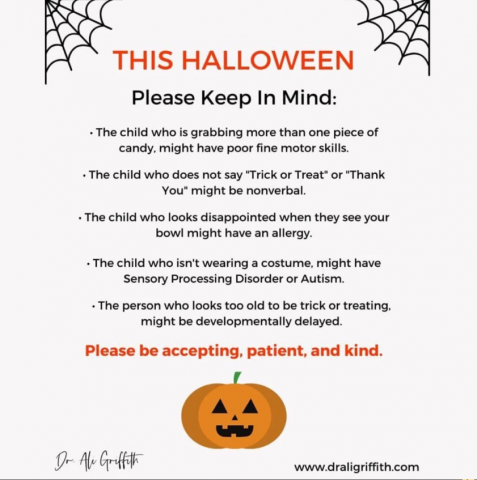
Developmental Language Disorder (DLD) is a neurodevelopmental condition that is very common, affecting approximately 7% of the population. The cause of DLD is generally unknown. A person with DLD can have difficulty talking and understanding spoken language. Spoken words and sentences can be challenging for people with DLD. DLD may also impact behaviour, attention, academic achievement, and peer relationships.
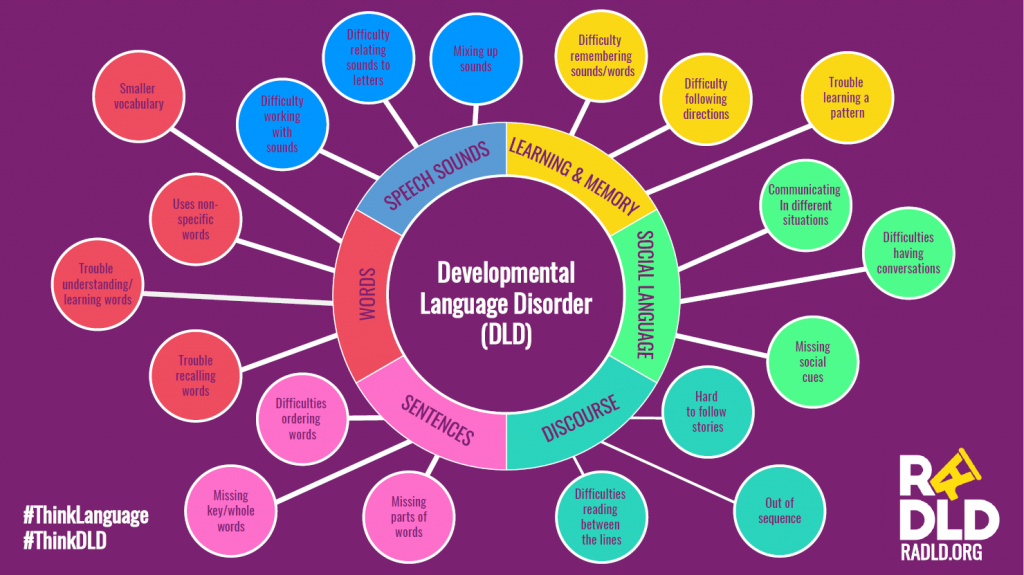
The Burnaby Speech Language Pathologists work with many students with DLD. We also support families and school teams.
© 2026 Speech-Language Pathology Services
Theme by Anders Noren — Up ↑